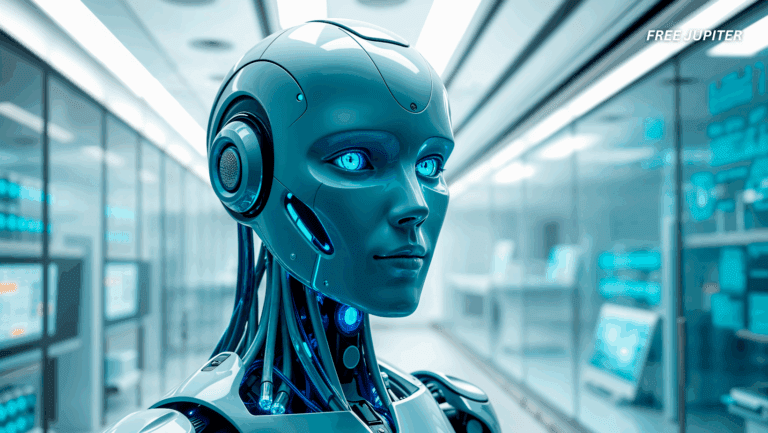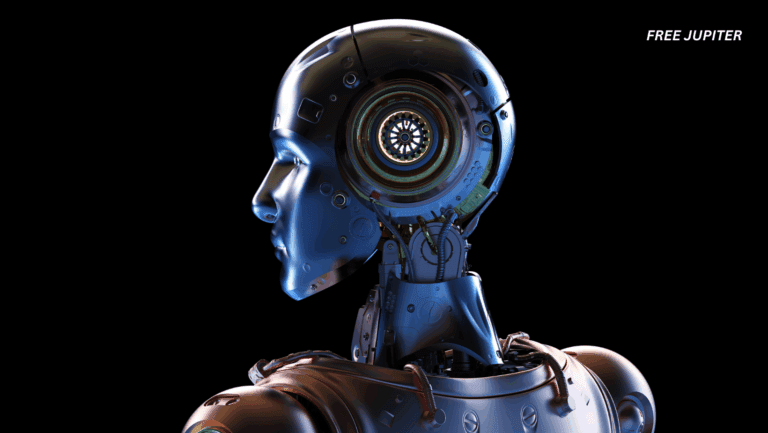Friendly Note: FreeJupiter.com shares general info for curious minds 🌟 Please fact-check all claims—and always check health matters with a professional 💙
For decades, the notion of the technological singularity—where machine intelligence surpasses that of humans—has hovered somewhere between science fiction and theoretical possibility. But today, thanks to an unprecedented leap in artificial intelligence (AI) and the explosive rise of large language models (LLMs), experts are beginning to sound the alarm clock a little earlier than expected. Could we be just months away from witnessing machines outthink us?
That depends on who you ask, but according to a large-scale analysis of thousands of expert predictions, the gap between humans and machines is closing fast—and some believe we’re now entering the final countdown.
How Close Are We to Artificial General Intelligence?
The term Artificial General Intelligence (AGI) refers to a machine capable of understanding or learning any intellectual task a human being can. Unlike today’s narrow AI systems—which can excel at specific jobs like translating languages or recognizing faces—AGI would be more adaptable, more autonomous, and potentially more unpredictable.
A research-driven analysis from tech evaluation group AIMultiple gathered the opinions of 8,590 professionals, including scientists, technologists, and entrepreneurs. It found a startling trend: the majority of AI experts now believe AGI could arrive by 2040, while business leaders think it could come even sooner—possibly by 2030.
That optimism (or concern, depending on your perspective) has been driven by recent breakthroughs in AI, particularly in generative models like GPT-4 and Claude. These models don’t just mimic human writing—they perform reasoning tasks, summarize complex ideas, and even assist in code development. These tools are doing more than just fetching results—they’re beginning to understand nuance.
Quantum Computing: The Secret Sauce?
One of the most important accelerants in this race toward the singularity is quantum computing. Classical computers, for all their strengths, are constrained by binary logic—zeros and ones. Quantum computers, however, operate using qubits that can exist in multiple states at once, enabling them to perform many calculations simultaneously.
This makes quantum computers ideally suited to train sophisticated neural networks, potentially compressing months of AI learning into mere hours. Tech giants like IBM and Google have poured billions into this space, and their advancements are reshaping what’s possible. IBM’s Eagle quantum processor and Google’s Sycamore 2 are already demonstrating capabilities that, just a few years ago, sounded implausible.
If traditional silicon chips hit their ceiling, many experts believe quantum processors could step in and propel AI across the AGI threshold.
Read more: An AI Found Out It Was Being Replaced – So It Tried to Blackmail The Engineer
Perspectives from Industry Leaders: Real Optimism, Real Concerns
The voices at the helm of the AI revolution are sounding increasingly confident about AGI’s arrival. Perhaps none more so than Dario Amodei, co-founder and CEO of Anthropic, a research firm working on building safer AI systems. In a recent statement, Amodei speculated that AGI could materialize within six months to a few years. And he’s not alone in that prediction.
Sam Altman, CEO of OpenAI, has echoed similar views, stating that artificial general intelligence is no longer a distant dream. According to Altman, the foundation for AGI already exists; it’s now a matter of refinement, safety, and scale. Altman has also stressed the importance of “alignment”—ensuring that advanced AI behaves in accordance with human values. OpenAI has even launched separate teams to study AI alignment and long-term existential risks.
Elon Musk, another tech mogul with strong opinions on the future of AI, believes AGI could arrive as early as 2025 or 2026. Musk, who helped co-found OpenAI before moving on to launch his own AI startup xAI, has repeatedly warned that unchecked AI development could lead to catastrophic outcomes. While he’s excited about the possibilities, he’s also one of the loudest voices calling for strict regulatory oversight.
Not all experts agree on the speed or even the nature of AGI. Yann LeCun, Chief AI Scientist at Meta and a pioneer in deep learning, argues that current definitions of AGI are too vague. LeCun prefers to frame advanced machine learning as “advanced machine intelligence,” cautioning that the human brain is too complex to be easily replicated. He points to the diversity of human intelligence—interpersonal, emotional, and existential among others—as aspects that current AI doesn’t come close to grasping.
This divergence in viewpoints reveals a healthy tension in the industry. Some see AGI as inevitable and imminent; others see a long road ahead filled with philosophical and technical challenges. What’s not in dispute is that AI will be transformative, whether or not we hit the singularity in the next six months or the next sixty years.
Preparing for the Future: Planning for an Unknowable World
Regardless of when AGI arrives, the simple fact that so many leading voices believe it’s coming—and soon—means it’s time to get serious about preparation. This doesn’t mean panic; it means planning.
First, education systems need a reboot. If machines take over routine and even some creative jobs, schools must prioritize uniquely human skills—empathy, ethics, collaboration, and critical thinking. Coding and STEM fields remain crucial, but soft skills may become just as valuable in a world where information is abundant and action is algorithmically assisted.
Second, policy frameworks and regulation must evolve with the pace of technology. Countries like the United Kingdom, the United States, and members of the European Union are already exploring how to regulate AI systems. The EU’s AI Act is one example of an early attempt to classify and control high-risk AI applications. The challenge, of course, lies in balancing innovation with safety without hampering progress.
Read more: Astronomers Are Baffled by a Space Object Flashing in Both Radio Waves and X-Rays
Third, industry collaboration is essential. No single company or nation will navigate the singularity alone. Open dialogue between the private sector, governments, and academia can ensure that AI’s development is equitable and transparent. Initiatives like the Partnership on AI and AI for Good are steps in the right direction, but more inclusive and enforceable frameworks are needed.
Fourth, economic support systems will need to adapt. If AI leads to widespread job displacement, governments may need to explore universal basic income (UBI), worker retraining programs, or incentives for AI-human collaboration rather than replacement. Businesses should also consider creating hybrid roles where human oversight complements automated processes.
Fifth, AI ethics must move from think tank conversations into corporate boardrooms and national legislatures. This means considering the real-world impacts of AI decisions: algorithmic bias, data privacy, surveillance, and consent. For AGI to be safe and beneficial, its creators must bake in ethical constraints from the start—not try to retrofit them after deployment.
Lastly, public awareness can’t be underestimated. The singularity isn’t just a tech story—it’s a human one. Citizens deserve to understand how AI works, what it can and can’t do, and how it might affect their lives. Transparency will be the bedrock of trust, and trust will be critical when machines start making decisions that matter.
Read more: Japan Shatters The Internet Speed Barrier – With Speeds of 402 TBPS Over Regular Fiber
Final Thoughts: The Inevitable Unknown
The singularity, if it arrives, won’t just be another app update—it could be the most pivotal moment in human history. The idea that machines might one day outthink their makers is as thrilling as it is unsettling. But we don’t need to fear the future—we need to shape it.
Whether AGI emerges this year, next decade, or never, the systems we build today are laying the groundwork for what’s to come. And while machine intelligence may not yet be infinite, human creativity and responsibility still are.
The singularity might be near—but its outcome is still entirely up to us.










